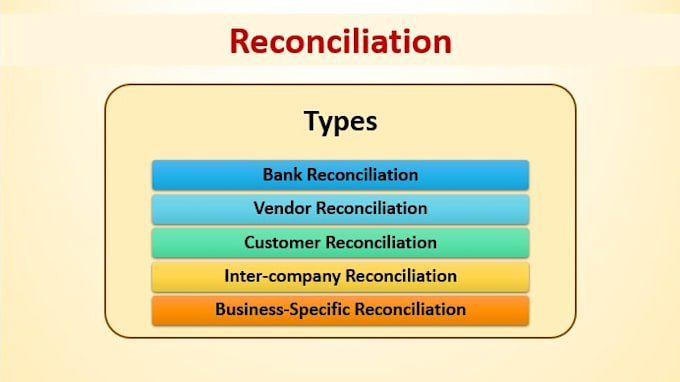SNAP Benefits for Family of 4 in Florida: Complete Guide to Food Stamp Amounts and Eligibility
Understand snap benefits for families of four in Florida
The supplemental nutrition assistance program (snap), usually know as food stamps, provide crucial food assistance to eligible families across Florida. For a family of four, understand benefit amounts and eligibility requirements help ensure you receive the maximum assistance available for your household situation.
Snap benefits vary importantly base on household income, expenses, and specific circumstances. Florida follow federal guidelines while implement state specific procedures that affect how benefits are calculated and distribute to qualifying families.
Maximum snap benefits for four-person households
The maximum monthly snap benefit for a household of four people presently stand at $939. This maximum amount apply to households with zero net income after deductions are aapplied Most families receive less than the maximum base on their income and allowable deductions.
Benefit calculations use a formula that consider gross income, net income, and allowable deductions. The final benefit amount equal the maximum benefit minus thirty percent of the household’s net income. This calculation ensure that families with higher incomes receive proportionately lower benefits while ease provide meaningful food assistance.
Emergency allotments and temporary increases may affect benefit amounts during specific periods. These adjustments respond to economic conditions, natural disasters, or federal policy changes that impact food security for participate households.
Income eligibility requirements
Gross monthly income for a four-person household must not exceed $3,007 to qualify for snap benefits in fFlorida This limit rrepresents130 percent of the federal poverty level and include all income sources before deductions are applied.
Net monthly income after allowable deductions must not exceed $2,313 for most households. Net income calculations subtract specific expenses like housing costs, childcare expenses, and medical costs for elderly or disabled household members.
Households with elderly or disabled members may qualify with higher gross incomes, as these households are exempt from gross income limits. Exclusively the net income test apply to these households, provide additional flexibility for families with special circumstances.
Allowable income deductions
Standard deduction of $198 apply to all ffour-person households reduce countable income for benefit calculations. This deduction account for basic living expenses not specifically cover by other deduction categories.
Housing and utility costs exceed fifty percent of income after other deductions may qualify for shelter deductions. These deductions include rent, mortgage payments, property taxes, homeowners insurance, and utility expenses for heating, cooling, electricity, water, and telephone service.
Childcare expense necessary for work, training, or education qualify for deductions when care for children under thirteen or disabled dependents. Medical expenses for elderly or disabled household members exceed $35 monthly besides reduce countable income.

Source: taxuni.com
Asset and resource limits
Households may own up to $2,750 in countable resources while maintain snap eligibility. Households with elderly or disabled members may own upwards to $$4250 in countable resources without affect their benefits.
Countable resources include cash, bank accounts, stocks, bonds, and other liquid assets that can be pronto convert to cash. Certain resources are excluded from these limits, include the home where the household live, one vehicle per household member, and retirement accounts.
Life insurance policies, burial plots, and household goods do not count toward resource limits. Educational savings accounts and certain disability relate resources besides receive exemptions from asset calculations.
Application process in Florida
Florida residents can apply for snap benefits online through the access fFloridawebsite, by phone, by mail, or in person at local department of children and families offices. Online applications provide the virtually convenient option for most families and allow document submission through secure portals.
Required documentation include proof of identity, residency, income, expenses, and household composition. Social security numbers are required for all household members, thoughnon-citizenss may apply for benefits for eligible household members flush if they themselves are not eligible.
Application processing typically takes thirty days from the date the application isreceivede. Expedite processing is available for households with urgent needs, include those with selfsame low income and resources or face immediate food insecurity.
Interview requirements
All snap applicants must complete an eligibility interview as part of the application process. Florida conduct most interviews by telephone, though in person interviews are available upon request or when require by specific circumstances.
Interview scheduling occur after the application is submit, andand initial documentation is review. Applicants receive notification of their interview appointment and instructions for complete this requirement.
During the interview, caseworkers verify information provide in the application, clarify any unclear details, and ensure all eligibility requirements are meet. Applicants should be prepared to discuss household circumstances, income sources, and expenses in detail.

Source: zrivo.com
Benefit calculation examples
A family of four with gross monthly income of $2,500 and rent of $$800would receive benefits calculate asas followsgross income minus standard deduction (( $198 )nus shelter deduction ( if(pplicable ) eq)l net income. Thirty percent of net income is subtrasubtractedthe maximum benefit to determine the final amount.
Families with no income receive the maximum benefit of $939 monthly. As income increases, benefits decrease proportionately, ensure that work families ccontinue to receiveassistance while transition towarself-sufficiencycy.
Households with significant shelter costs much qualify for larger deductions, result in higher benefit amounts. Medical expenses for elderly or disabled members can besides considerably increase benefit calculations for qualifying households.
Special circumstances and exceptions
College students face specific eligibility restrictions unless they meet certain exemptions, such as work at least twenty hours weekly, care for young children, or participate in work study programs. These restrictions ensure that snap benefits target those with the greatest need.
Able-bodied adults without dependents between ages eighteen and foforty-ninere subject to work requirements and time limits. These individuals must work or participate in training programs for at least twenty hours weekly to maintain benefits beyond three months in a ththirty-sixonth period.
Homeless individuals and families may qualify for expedite processing and special consideration regard address requirements. Temporary living situations do not disqualify households from receive benefits when they meet other eligibility criteria.
Recertification and ongoing requirements
Snap benefits require periodic recertification to maintain eligibility. Most households must recertify every twelve months, though some may have shorter certification periods base on their circumstances.
Households must report changes in income, household composition, or other circumstances that affect eligibility within ten days. Failure to report changes seasonable can result in overpayments that must be repaid or benefit termination.
Monthly reporting requirements apply to some households with fluctuate income or specific circumstances. These households must submit income reports each month to ensure accurate benefit calculations.
Use snap benefits efficaciously
Snap benefits are distributed monthly through electronic benefit transfer( deb)) cards that work like debit cards at authorized retailers. Benefits can purchase most food items but can not be use for alcohol, tobacco, hot prepared foods, or non-food items.
Eligible food items include fruits, vegetables, meat, poultry, fish, dairy products, bread, cereals, snacks, and non-alcoholic beverages. Seeds and plants that produce food for household consumption are besides eligible purchases.
Many retailers accept snap benefits, include grocery stores, supermarkets, convenience stores, and some farmers markets. Online purchasing is available through approve retailers, expand access for households with transportation challenges.
Additional resources and support
Florida offer additional nutrition assistance programs that complement snap benefits. The women, infants, and children (wWIC)program provide supplemental nutrition for pregnant women, new mothers, and young children in eligible families.
School meal programs provide free or reduce price breakfast and lunch for children in families receive snap benefits. Summer meal programs continue this assistance when school is not in session.
Food banks, pantries, and community organizations throughout Florida provide emergency food assistance and nutrition education. These resources help stretch snap benefits and provide additional support during challenge times.
Nutrition education programs teach meal planning, budgeting, and healthy cooking skills to help families maximize their food assistance benefits. These programs are much available at no cost through local health departments and community organizations.
Common application challenge
Documentation requirements can present obstacles for some families, especially those experience homelessness or lack traditional proof of residence. Florida provide alternative verification methods for households face these challenges.
Income verification for self employ individuals or those with irregular work schedules require careful documentation of earnings patterns. Caseworkers can help applicants understand what documentation is acceptable for their specific situations.
Language barriers may complicate the application process for non English speaking families. Interpreter services are available during interviews and throughout the application process to ensure all families can access benefits.
Understand snap benefits for a family of four in Florida require careful consideration of income, expenses, and household circumstances. While the maximum benefit provide substantial food assistance, actual amounts vary base on individual family situations. Work with knowledgeable caseworkers and utilize available resources help ensure families receive the maximum benefits for which they qualify while meet all program requirements.



